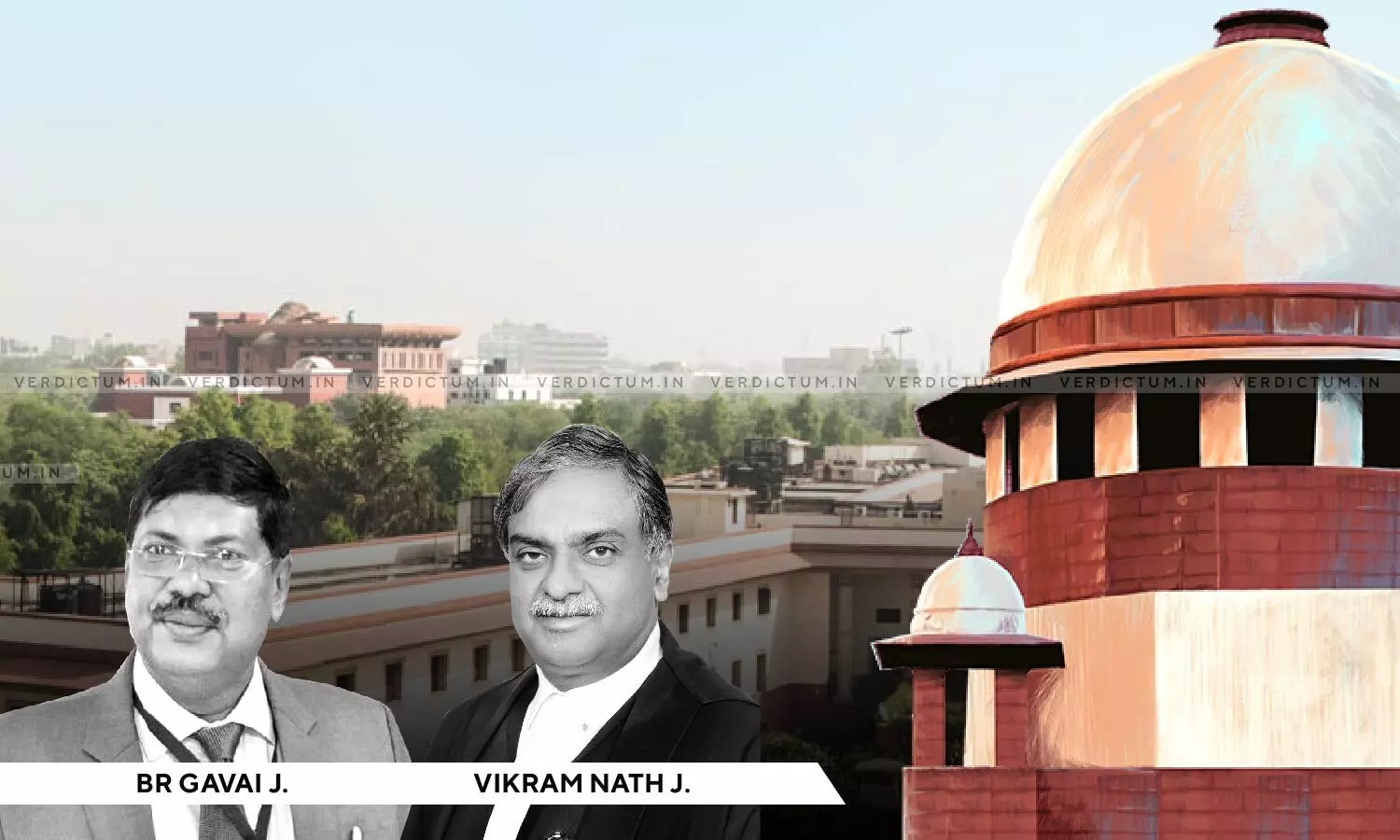
Additional Charges Levied By State Instrumentalities After Cut-Off Date Are "Change In Law", Compensation Must Be Paid - SC To DISCOMS
 |
|A Supreme Court Bench of Justice BR Gavai and Justice Vikram Nath has held that the Distributing Companies must pay "Change In Law" compensation to Power Generating Companies for all additional charges levied by State instrumentalities.
The Apex Court held that all additional charges which are payable on account of orders, directions, Notifications, Regulations, etc., issued by the instrumentalities of the State, after the cut-off date, will have to be considered to be ‘Change in Law’ events."
Senior Counsel CA Sundaram appeared for DNH-DISCOM, while Senior Counsel Niranjan Reddy appeared for the respondent-GWEL.
In this case, cross-appeals were preferred by various Distributing Companies (DISCOMS) against the judgment of the APTEL and by several power-generating companies which those DISCOMS awarded the Power Purchase Agreements (PPAs).
The power-generating companies had approached the Central Electricity Regulatory Commission seeking relief for certain "Change In Law" events that had happened regarding the PPAs. During the appeal, the APTEL allowed certain claims and disallowed others.
On perusal of the PPAs, the Apex Court observed that "Perusal of the definition of the term “Law” itself would clearly show that the term “Law” would mean all laws including Electricity Laws in force in India and any statute, ordinance, regulation, Notification or code, rule, or any interpretation of any of them by an Indian Governmental Instrumentality and having force of law. It would further reveal that the term “Law” shall also include all applicable rules, regulations, orders, Notifications by an Indian Governmental Instrumentality and shall also include all rules, regulations, decisions and orders of the CERC and the MERC."
Therefore, it was concluded that "all such additional charges which are payable on account of orders, directions, Notifications, Regulations, etc., issued by the instrumentalities of the State, after the cut-off date, will have to be considered to be ‘Change in Law’ events."
In addition, the Supreme Court noted that in the case of Uttar Haryana Bijli Vitran Nigam Limited (UNHVNL) and another v. Adani Power Limited and others, it was observed that the ‘Change in Law’ events will have to accrue from the date on which Rules, Orders, Notifications are issued by the instrumentalities of the State.
In light of the same, it was held that the Generators would be entitled to compensation on the restitutionary principle on such changes occurring after the cut-off date.
The Court found that the bid to pursue litigation by the DISCOMS was a waste of the Court's time. In that context, it was said that "Even in spite of this finding, the DISCOMS are pursuing litigations after litigations. We find that, when the PPA itself provides a mechanism for payment of compensation on the ground of ‘Change in Law’, unwarranted litigation, which wastes the time of the Court as well as adds to the ultimate cost of electricity consumed by the end consumer, ought to be avoided. Ultimately, the huge cost of litigation on the part of DISCOMS as well as the Generators adds to the cost of electricity that is supplied to the end consumers".
In light of the same, the Court appealed to the Ministry of Power to evolve a mechanism so as to ensure timely payment by the DISCOMS to the Generating Companies, which would avoid huge carrying cost to be passed over to the end consumers.
Cause Title: GMR Warora Energy Limited vs Central Electricity Regulatory Commission (CERC) & Ors.
Click here to read/download the Judgment